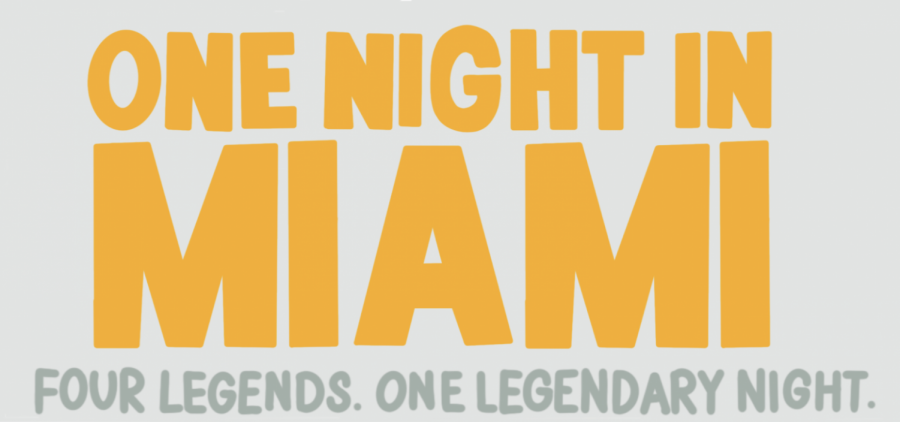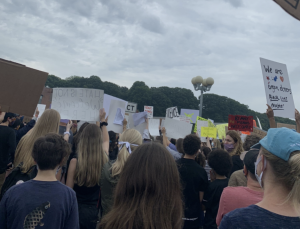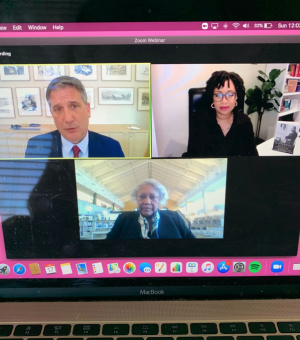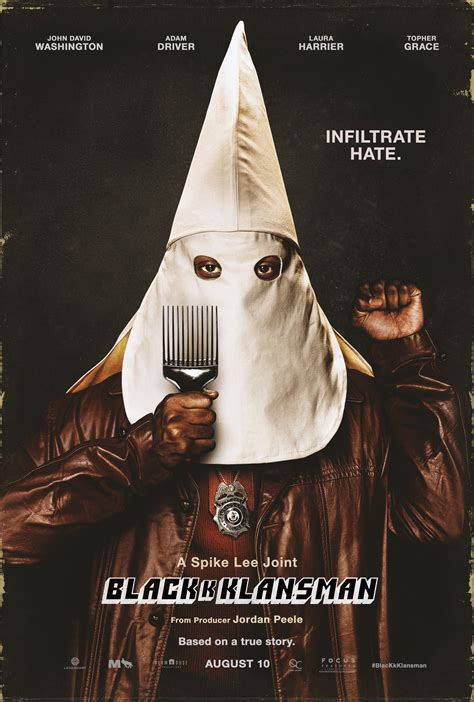‘One Night in Miami’ fantastically illustrates fictional meeting of four legendary figures
Every movement has its icons. Its legends. The people who empowered and influenced, the people we learn about in school. But what happens when they’re all put in a room together?
Inspired by a real photo taken of four black icons during the Civil Rights Movement — Malcolm X, Muhammad Ali, Sam Cooke, and Jim Brown–Regina King’s drama “One Night in Miami,” first released on Jan. 15, depicts a fictional account of the meeting. This film marks Regina King’s debut as a movie director after acting in Hollywood since 1985.
Set in the Civil Rights Movement during the 1960s, on Feb. 25, 1964, the Muslim minister and civil rights activist Malcolm X played by Kingsley Ben-Adir, boxing champion Muhammad Ali, also known as Cassius Clay, (Eli Goree), singer-songwriter Sam Cooke (Leslie Odom Jr.) and NFL football star and athlete Jim Brown (Aldis Hodge) all meet up in Malcolm’s hotel room after Clay became the new heavyweight champion. They thought they were going out to celebrate Clay’s new title, but Malcolm decides they are all going to stay in and “reflect” on the night. There is talk of everything from religion, to women, to their impact in the ongoing movement.
A main message that this movie conveys is that it’s incredibly important for people to use their influence in society to empower others.
In one pivotal scene in the movie, Malcolm is persuading Cooke that he needs to stop playing music for white people and write music to empower the Civil Rights Movement. He plays Cooke a song by Bob Dylan about black empowerment and asks him how it feels that a white man is standing up for them, but that Cooke “can’t even do it for his own people.” Malcolm puts an emphasis on the power and influence Cooke’s music has, and how he should play for a greater cause.
Another powerful idea that the movie portrays is Black power. While Clay and Cooke are talking about what Malcolm had said, Clay calls the Civil Rights Movement Black power. Cooke responds that he “likes the sound of that.” This idea of Black power is used to empower Black people to stand up to the injustices they face and to remind them again of their obligation to promote Black power on each of their platforms.
This is definitely a must see movie for everyone and can be used as a tool for people to not only educate themselves about racism, both past and present.

Creative Director Lily Klau ’23 loves Inklings because of the community it creates, but joined the paper for a reason you might not expect.
“My...






















































